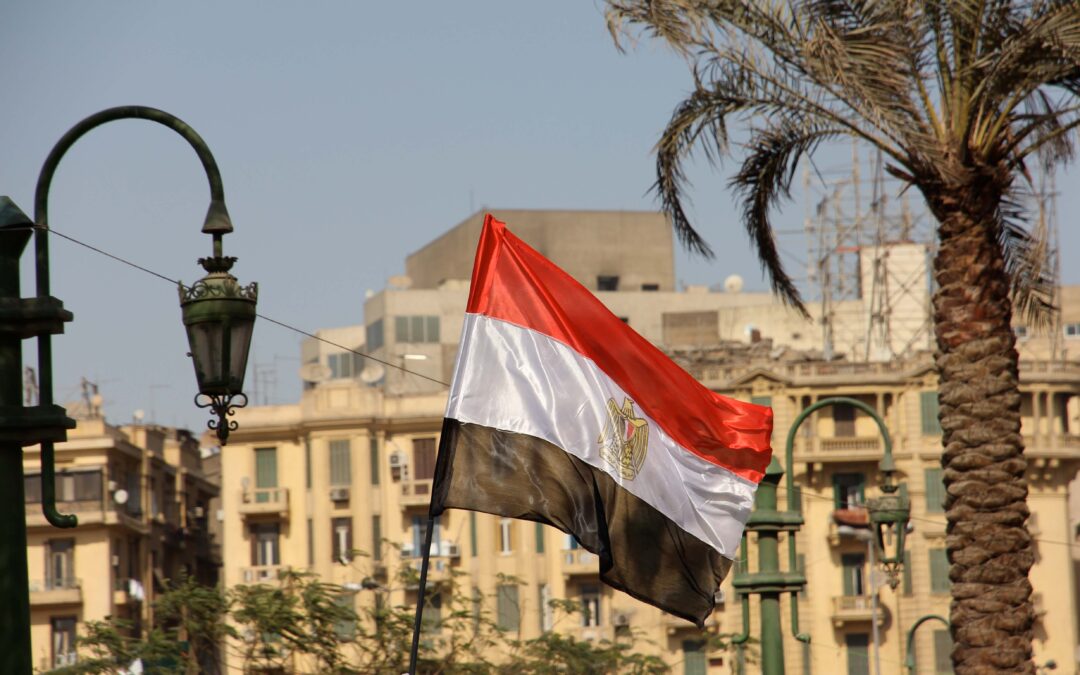
Apr 24, 2015 | News
The ICJ today called on the Egyptian authorities to ensure a prompt, impartial and effective investigation into the deaths of two lawyers, Imam Afifi and Karim Hamdi, who recently died while in police custody in Mataria police station.
The ICJ is deeply concerned that the deaths of Imam Afifi and Karim Hamdi while in police custody are part of a widespread and sustained campaign targeting hundreds of lawyers since 2013, including those defending political opponents of the regime and human rights activists, as well as lawyers exercising their rights to freedom of assembly and expression.
“The Egyptian authorities must effectively investigate and prosecute all those responsible for the alleged torture and death of Imam Afifi and Karim Hamdi while in police custody and must hold accountable any person responsible for wrongful conduct ,” said Said Benarbia, Director of the ICJ MENA Programme.
“The authorities must bring an end to their ongoing campaign of harassing and persecuting lawyers, including arbitrary arrests and prosecutions, for simply discharging their professional duties or for speaking out against human rights violations,” he added.
Under international standards, lawyers should be able to carry out their professional duties free from hindrance, intimidation, harassment or interference, says the ICJ.
They should not be identified with their clients or their clients’ causes or subject to arbitrary arrest and prosecutions as a result of the discharge of their functions.
Background:
On 10 April, Imam Afifi, a 63-year old lawyer, was assaulted and arrested in the Mataria neighborhood where a demonstration was taking place against the government.
He was detained in Mataria police station where he was allegedly subjected to torture, including a severe beating to his head.
On 11 April, he was transferred from the police station to Mataria hospital.
A medical report from the same day, to which the ICJ had access, indicates that Imam Afifi was admitted to the hospital with a massive trauma to the head. He died in hospital on 22 April.
On 22 February, another lawyer, Karim Hamdi, was arrested and questioned on suspicion of belonging to the Muslim Brotherhood, membership of which has been outlawed, and participating in an unauthorized demonstration against the government.
While in police custody in Mataria police station, he was reportedly severely beaten on his neck, chest and abdomen. He died two days later after being transferred to hospital.
Following a complaint by the Bar Association to the prosecutor’s office, two members of the National Security Agency were charged with torturing and murdering Karim Hamdi.
Additional information:
According to information available to the ICJ, attacks against lawyers since 2013 include the following:
On 23 April 2015, six lawyers were summoned for interrogation in relation to their participation in a demonstration on 9 March to protest against the death of Mr Karim Hamdi.
The lawyers also challenged the prosecutor’s decision to prohibit anyone from reporting on the investigation into Mr Hamdi’s case.
On 23 March 2015, human rights lawyer, Azza Soliman, was charged with breaching public order and security under the 2013 Demonstration Law after voluntarily providing testimony against police involved in the killing of Social People’s Alliance party activist, Shaimaa El Sabbagh, on 24 January 2015.
The Qasr El Nile Prosecution Office in Cairo subsequently changed her status from witness to defendant.
On 9 February 2015, a human rights lawyer, Ms Mahienour El Massry, was sentenced to two years imprisonment after she attended the El-Ramel police station in Alexandria, in March 2013, in order to defend demonstrators.
The charges against her included “insulting government employees in the performance of their duties”, “insulting representatives of the authorities” and “attempting to break into a police station”.
Three lawyers, Basma Zahran, Mahmoud Bilal and Oussama Al Mahdi, were referred for investigation, on 3 September 2014, for “disrupting and causing trouble” during trial proceedings for insisting that their client, the human rights activist Ahmed Douma, seated in a sound-proof glass cage, should be heard.
On 5 July 2013, Abdel Men’em Abdel Maqsoud was arrested while attempting to attend the interrogation of his clients, deputy Secretary General of the Muslim Brotherhood, Rachad Bayoumi, and Mohamed Saad Al Katanah.
He was detained before being released on bail on 2 September 2014.
Contact:
Alice Goodenough, Legal Adviser of the ICJ Middle East and North Africa Programme, t: 44 7815 570 834, e: alice.goodenough(a)icj.org
Nader Diab, Associate Legal Adviser of the ICJ Middle East and North Africa Programme, t: 41 229 793 804, e: nader.diab(a)icj.org
Egypt-Deaths of lawyers-News-Press release-2015-ARA (full text of Arabic version in PDF)
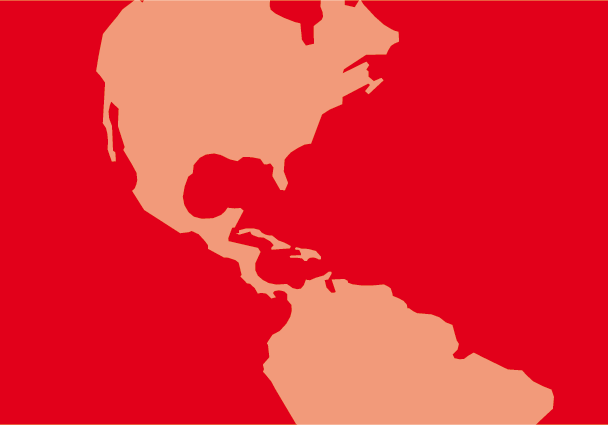
Apr 7, 2015 | News
Venezuela is intimidating and harassing human rights defenders, and making unsubstantiated allegations that they are seeking to undermine Venezuelan democracy, 28 international and Latin American human rights organizations, including the ICJ, said today.
The authorities’ allegations concern the groups’ legitimate functions of documenting abuses and representing victims before international human rights bodies.
Venezuelan authorities should cease this tactic immediately, the groups said.
Governments participating in the Summit of the Americas in Panama on April 10-11, 2015, should press the administration of Nicolás Maduro to ensure that human rights defenders can do their job without fear of reprisals, the organizations said.
The government harassment is clearly intended to discredit and intimidate groups that document human rights violations, the groups said.
On February 12, Diosdado Cabello, president of the National Assembly and member of the governing party, stated on the website of his weekly TV show, Con el Mazo Dando, aired on the state-run Venezolana de Televisión, that “NGO representatives from the Venezuelan extreme right” would participate in hearings before the Inter-American Commission on Human Rights (IACHR) in March.
Cabello had previously criticized Venezuelan human rights defenders who participated in the country’s review by the UN Committee Against Torture in Geneva, or traveled abroad to conduct advocacy meetings.
On March 18, during his show, Cabello read a list of names of individuals and organizations who had traveled to Washington, DC, to participate in the IACHR hearings.
The list included leading human rights groups such as Provea, Espacio Público (Public Space), Observatorio Venezolano de Prisiones (Venezuelan Observatory of Prisons), Transparencia Venezuela (Transparency Venezuela), Cofavic, Codevida, and Observatorio Venezolano de Conflictividad Social (Venezuelan Observatory of Social Conflicts).
Cabello accused them of receiving instructions from the US Embassy in Caracas before traveling to the hearings.
Cabello contends that the information presented on the show had been provided by anonymous “patriotic informants” (patriotas cooperantes).
Twelve human rights defenders who arrived in Caracas on various flights between March 20 and 22 have said that they were followed by unidentified men from when they landed until they left the airport, were filmed or photographed, and/or that officials irregularly searched their bags.
On March 23, María Alejandra Díaz, a lawyer who represented the government at the IACHR hearings, said on Venezolana de Televisión that “The issue of human rights is just a façade” and that nongovernmental groups that participated in the hearings “say they are Venezuelan” but “play the imperialist game” and “lie in front of the IACHR to make Venezuela look like the devil.”
An article published on April 3 in the official newspaper Correo del Orinoco accused two well-respected human rights defenders of being part of the US Central Intelligence Agency’s “Venezuelan delegation” at the Summit of the Americas.
Their objective is to “legitimize destabilization actions” in Venezuela, the article says.
Under international law, governments must ensure that human rights defenders are allowed to pursue their legitimiate activities without reprisals, threats, intimidation, harassment, discrimination, or unnecessary legal obstacles.
The Inter-American Court of Human Rights held in 2003 that “[r]espect for human rights in a democratic state depends largely on human rights defenders enjoying effective and adequate guarantees so as to freely go about their activities.”
The rights to freedom of expression and association may be subject to limitations, but the limitations must adhere to strict standards so that they do not improperly impede the exercise of those rights. Any restrictions should be prescribed by law, be necessary in a democratic society, and proportionate to the aim pursued.
In 2012, the UN special rapporteur on the rights to freedom of peaceful assembly and of association called on countries to ensure that these rights “are enjoyed by everyone and any registered or unregistered entities” and that no one is subject to “harassment, persecution, intimidation or reprisals” for exercising them.
Signatories
Amnesty International
Asociación Pro Derechos Humanos (APRODEH) (Peru)
Asociación por los Derechos Civiles (ADC) (Argentina)
Centro de Derechos Humanos de la Montaña Tlachinollan (Mexico)
Centro de Derechos Humanos Miguel Agustín Pro Juárez, A.C. (Centro Prodh) (Mexico)
Centro de Estudios de Derecho, Justicia y Sociedad (Dejusticia) (Colombia)
Center for Justice and International Law (CEJIL)
CIVICUS
Ciudadanos en Apoyo a los Derechos Humanos, A.C. (CADHAC) (Mexico)
Comisión Colombiana de Juristas (Colombia)
Comisión Ecuménica de Derechos Humanos (CEDHU) (Ecuador)
Corporación Humanas (Chile)
Coordinadora Nacional de Derechos Humanos (Peru)
Due Process of Law Foundation (DPLF)
Instituto de Estudios Legales y Sociales del Uruguay (IELSUR) (Uruguay)
Instituto de Defensa Legal (IDL) (Peru)
Instituto de Desenvolvimento e Direitos Humanos (Brazil)
International Commission of Jurists
International Federation for Human Rights (FIDH)
International Service for Human Rights (ISHR)
Frontline Defenders
Fundación Myrna Mack (Guatemala)
Fundación Regional de Asesoría en Derechos Humanos (INREDH) (Ecuador)
Human Rights Watch
Observatorio Ciudadano (Chile)
Robert F. Kennedy Center for Justice & Human Rights
Transparency International
World Organization Against Torture
Venezuela-Harassment of HRDs-News-web stories-2015-SPA (full text in PDF, Spanish version)
Venezuela-Harassment of HRDs-News-web stories-2015-POR (full text in PDF, Portuguese version)
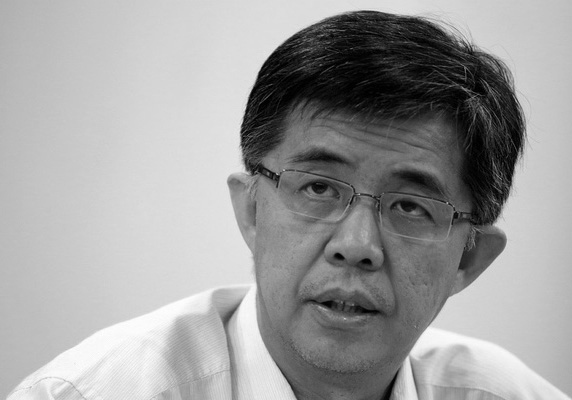
Mar 20, 2015 | News
The Malaysian government should immediately release from detention Malaysian Parliamentarian Tian Chua, the ICJ said.
Tian Chua, who is also Vice President of the opposition Parti Kaedilan Rakyat (PKR), was arrested today for allegedly committing acts under section 143 of the Penal Code on unlawful assembly.
The arrest took place before noon after Tian Chua voluntarily appeared at the Dang Wangi police station in Kuala Lumpur to provide a statement in connection with the investigations regarding his participation in the peaceful KitaLawan rally on 7 March 2015.
The police detained Tian Chua before he could provide his statement.
He has so far not been charged with any offence.
However, if he is charged under section 143 of the Penal Code and convicted, he may be imposed the penalty of imprisonment for up to six months or fined, or both.
“At least 11 opposition figures associated with the KitaLawan rally have now been targeted by the authorities, who have been arresting and detaining them for 24 hours as a form of harassment and intimidation,” said Emerlynne Gil, ICJ’s International Legal Advisor for Southeast Asia. “It seems that Malaysia is rapidly returning to the dark days during the late 1980s of systematic pretrial and arbitrary detention under the Internal Security Act.”
The KitaLawan rally was convened in protest at the conviction and imprisonment of opposition leader Anwar Ibrahim, who was sentenced to five years’ imprisonment in February 2015 on charges of sodomy, following a trial conducted in violation of international human rights standards.
The ICJ underlines that in the absence of charges for a cognizable criminal offence not predicated on the exercise of a protected human right, Tian Chua and the other individuals who participated at the KitaLawan rally should not have been arrested and any form of harassment against them must be ended.
Under Malaysian law, police arresting a person without a warrant has to bring the arrested person before a judge “without unnecessary delay”.
The law also provides that no person arrested without a warrant shall be detained for more than 24 hours before being presented to a judge.
“The authorities are abusing their powers and using the law as a form of punishment even before they are convicted of, or even charged with, an actual crime in violation of Tian Chua’s right to presumption of innocence,” added Gil. “This abuse of pretrial detention as a form of harassment aggravates the repressive atmosphere created by the recent misuse of sedition laws to silence critics.”
Tian Chua is expected to be held overnight in prison. He will have his remand hearing on 21 March in the morning.
The ICJ calls for Tian Chua’s immediate release and urges the Government of Malaysia to end all forms of harassment against persons for their participation in peaceful assemblies.
Contact:
Emerlynne Gil, ICJ’s International Legal Adviser for Southeast Asia, e: emerlynne.gil(a)icj.org, tel. no.: +66 2 619 8477 ext. 206 or +66 840923575
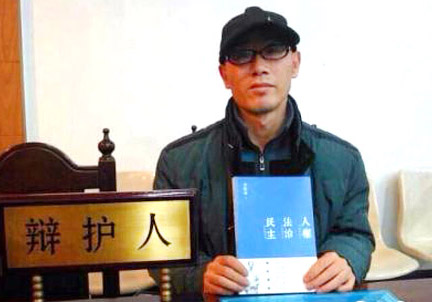
Dec 17, 2014 | News
Mr Chang Boyang, whose case ICJ raised in a letter to Chinese President Xi Jinping in September calling for his release, has been released on bail.
Mr Boyang, a lawyer working among other things to promote the rights of persons with disabilities in China, had been arrested and charged for activities that should have been recognized to be well within the scope of his professional role and his freedom of expression and association. The ICJ was informed today that Chang Boyang was released on bail on 29 November.
In another update, the ICJ has also been informed that Beijing-based lawyer Pu Zhiqiang, whose case was also raised in the letter to President Xi Jinping, has had additional charges brought against him. He remains in detention while his case has been sent back to police for further investigation, which is in turn likely to prolong his pre-trial detention. His lawyer reportedly said that Pu has already been interrogated 60 to 70 times, with each session lasting more than 10 hours.
The ICJ has not received any reply to its letter of 1 September 2014 to Chinese President Xi Jinping.
The ICJ remains deeply concerned about the situation of lawyers who raise human rights issues or otherwise act on cases the Chinese government deems to be sensitive. Those held in detention should be immediately released, and all criminal proceedings based on lawyers’ due discharge of their professional functions, or exercise of freedom of expression, association or assembly, must be dropped.
The ICJ Practitioner’s Guide no 1 on independence of judges, lawyers and prosecutors is available here in a variety of languages, including Chinese.
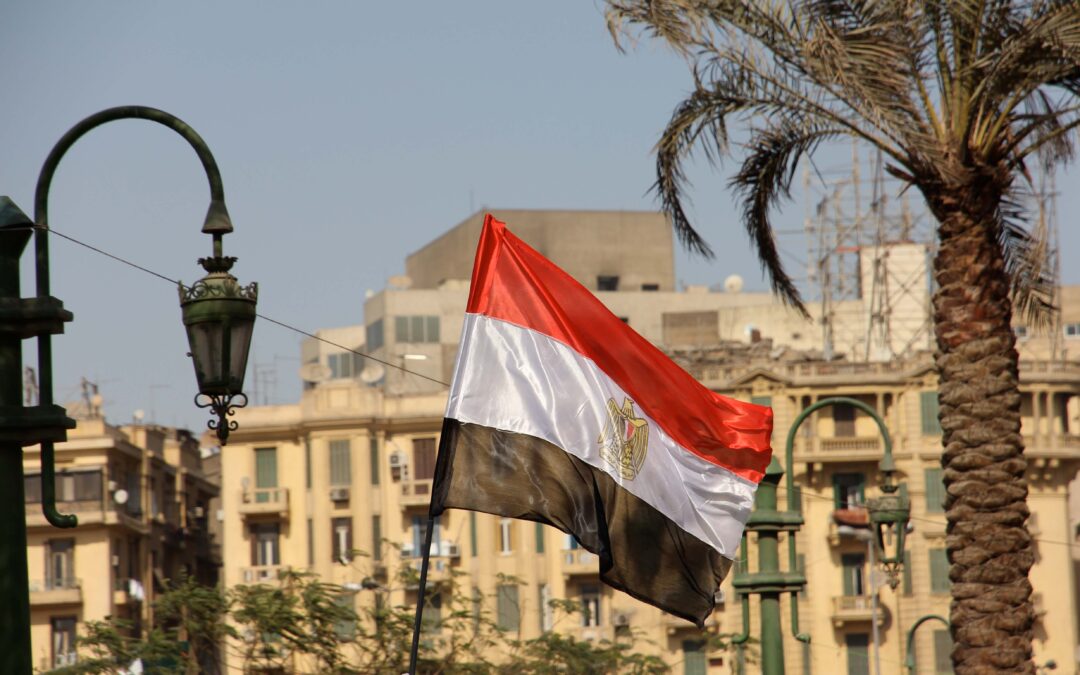
Sep 10, 2014 | News
The ICJ calls for the immediate and unconditional release of the 23 individuals, most of who are human rights defenders, arrested on 21 June 2014 in the context of a peaceful protest in Heliopolis, Cairo. All charges against them should be dropped.









